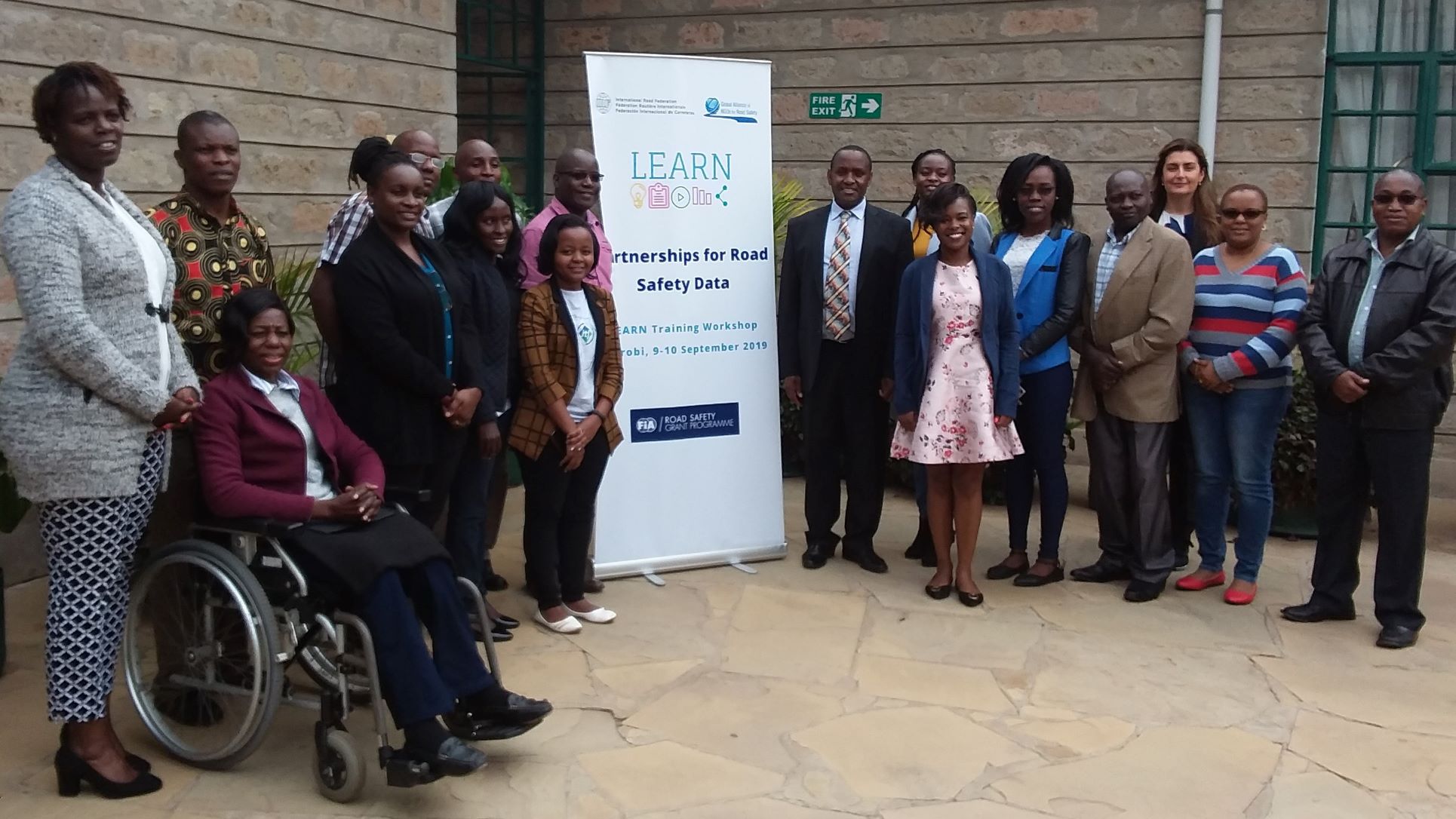
In 2019, the Alliance and the International Road Federation (IRF Geneva), supported by the FIA Road Safety Grants Programme, launched the LEARN program, starting first in Kenya and Senegal, and expanding in 2020–2021 with additional support from Total Energies Foundation, to Cameroon, Uganda, Togo, and Zambia.
The program uses multi-sectoral coalitions in each country, co-ordinated by a local NGO and involving government officials, academics, police, private sector, and anyone involved in the implementation of safer roads. Through LEARN, each coalition is equipped to use data more effectively for road safety planning and implementation and is tasked with building a joint action plan. Using the action plan, the coalitions implement a data-driven pilot project, defined by the coalition. The coalition collects data that it uses to recommend interventions, jointly seeks funding, and implements them. In Kenya, for example, the first LEARN cohort chose to focus on safe school zones for their pilot project. Five high risk schools zones have been identified and earmarked for assessment and improvement, Negotiations with a funder (a local bank) are in advanced stages to support at least one of the target schools.
The long-term purpose of the pilot project is much wider than community-level improvements. Through a data-driven approach, the coalition seeks to demonstrate the value of data to inform road safety implementation. While funding is sought for small-scale interventions, the bigger goal is for the government to recognize the need to invest in road safety data and allocate the necessary funds and resources to collect and analyse data on a bigger scale. In Uganda, for example, the coalition is planning to improve crash data collection processes by mapping out and bringing together the different actors involved in crash data management including hospitals, the police, and the Ministry of Transport. In many African countries, little or no government funding is allocated to data collection and analysis, hampering monitoring and achievement of road safety targets. By showing, on a small scale, collecting and using data, the LEARN coalitions hope to persuade their governments value road safety data and to allocate the necessary resources to gather, use, and store data that will improve their safety outcomes. LEARN also seeks to demonstrate to their governments the value of multisectoral partnerships to achieve safer roads together. Different sectors bring different skills and capacity: academics bring strength in data collection and analysis and are adept at applying for funds, the police are at the frontline of responding to crashes, private sector brings commercial and technical expertise and can open doors to funders and influencers, journalists can amplify messages; each one plays a different and valuable role.